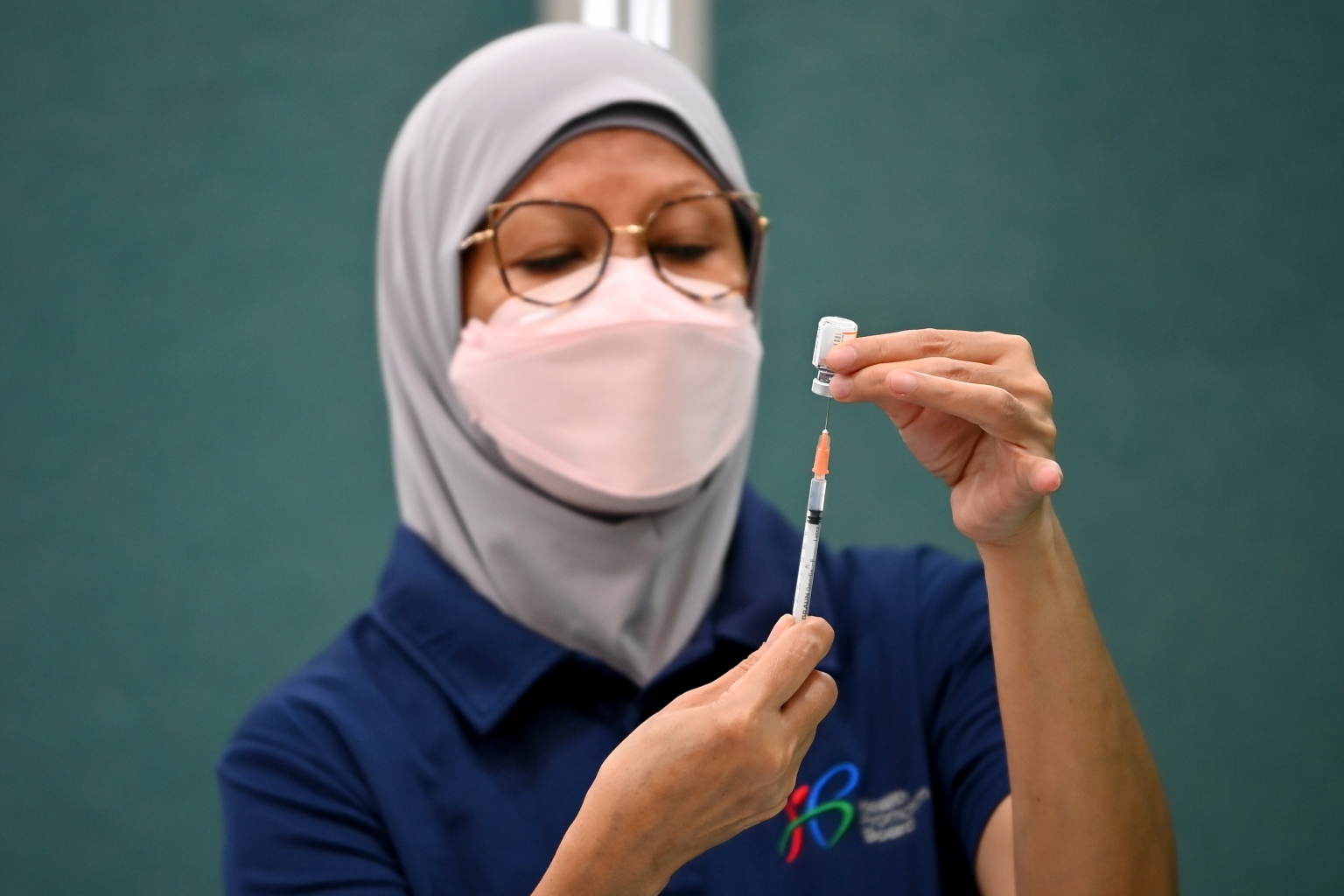New $6.5m effort to make nanoparticle manufacturing in S'pore cheaper, more efficient
Sign up now: Get ST's newsletters delivered to your inbox

The technology can be used to manufacture products such as the biological capsules that are used to encase mRNA in Covid-19 vaccines.
ST PHOTO: LIM YAOHUI
SINGAPORE - A new Singapore-based research project that aims to speed up the manufacture of nanoparticles - which are used in everything from Covid-19 vaccines to sunscreen and spacecraft - was launched on Monday (July 11).
The $6.5 million effort - called the Accelerated, Manufacturing Platform for Engineered Nanomaterials (Ample) - will develop a manufacturing platform that can be rapidly scaled up to produce up to 100kg of nanoparticles a day.
Ample is funded by the National Research Foundation's Central Gap Fund.
Current nanomaterial manufacturing techniques are time-intensive, inaccurate or bulky, said Dr Nicholas Jose, one of the project leads for Ample.
However, this new platform could help to reduce the time needed for such materials to come to market, he added.
This experimental platform, conducted by the Cambridge Centre for Advanced Research and Education in Singapore (Cares) and NTUitive, the innovation and enterprise company of Nanyang Technological University (NTU), is expected to be commercialised in Singapore around 2024, said the two institutions in a joint statement on Monday.
While Ample will initially focus on manufacturing antimicrobial zinc oxide particles, which are used in sunscreen and self-cleaning coatings, the technology can also be used to manufacture other products, they said.
These include, for example, biological capsules that are used to encase mRNA in Covid-19 vaccines, and advanced coatings for spacecraft.
Dr Jose said: "We can see nanomaterial applications all around us - in paints, computers, cars, medicine and textiles, to name a few."
He added that the microscopic particles, which can be up to 10,000 times smaller than the width of a human hair, can dramatically enhance the performance of current products and even enable the development of new products.
NTUitive chief executive David Toh said: "The success of this multidisciplinary project... will put Singapore in the lead position to produce novel nanomaterials, a field where the nation is already at the forefront."
Dr Jose, a Cares research fellow, said that nanomaterials are usually made slowly in large containers with high temperatures, pressures and toxic chemicals, or are produced quickly yet imprecisely through techniques like the grinding or burning of larger molecules.
This process of slow experimental scaling-up leads to a lead-up time of between 10 years and 20 years for a nanomaterial to come into the market.
As a result, the long timeline to commercialisation makes investors and industries reluctant to invest, creating a "chicken or egg" dilemma.
He added: "Some of the first materials like graphene, which was discovered in 2003, still have not reached economically viable tonne-scale production."
Graphene, which can conduct electricity, is being studied for use in gene therapy and to create more durable hydrogen fuel cells for cars, among other things.
However, Dr Jose said that Ample's technique, which uses a combination of machine learning and new reactor technology for efficient energy generation, will allow for the fast and accurate manufacturing of nano materials at a much lower cost.
He said: "Singapore and the world will undoubtedly face new and daunting challenges, whether pandemics or rising temperatures, which new materials are necessary to solve."
By providing an economical pathway to rapidly produce and commercialise these innovations in nanotechnology, Dr Jose hopes that such research will be brought to the masses at a faster rate.
Professor Lam Yeng Ming, chair of NTU's School of Materials Science and Engineering, who is not involved in Ample, said that the central bottleneck for the application of nanoparticles lies in how much of these can be manufactured.
Prof Lam, who created a face mask filter with copper oxide nanoparticles that can destroy 99.9 percent of bacteria and viruses in face masks, said: "To be able to produce large amounts of nanoparticles in a short time will ensure the adoption of the use of these nanoparticles."
She added that, ultimately, the ability to shorten the manufacturing process of these nanoparticles while keeping manufacturing precision high will shorten the time for this material to be produced in reasonable scale and used practically.


